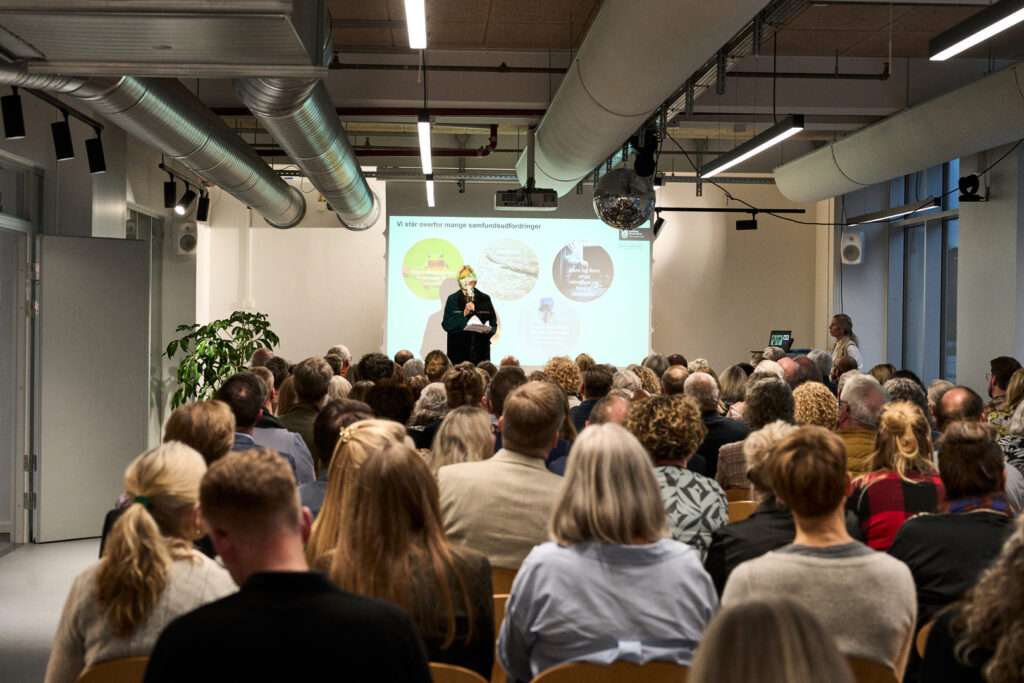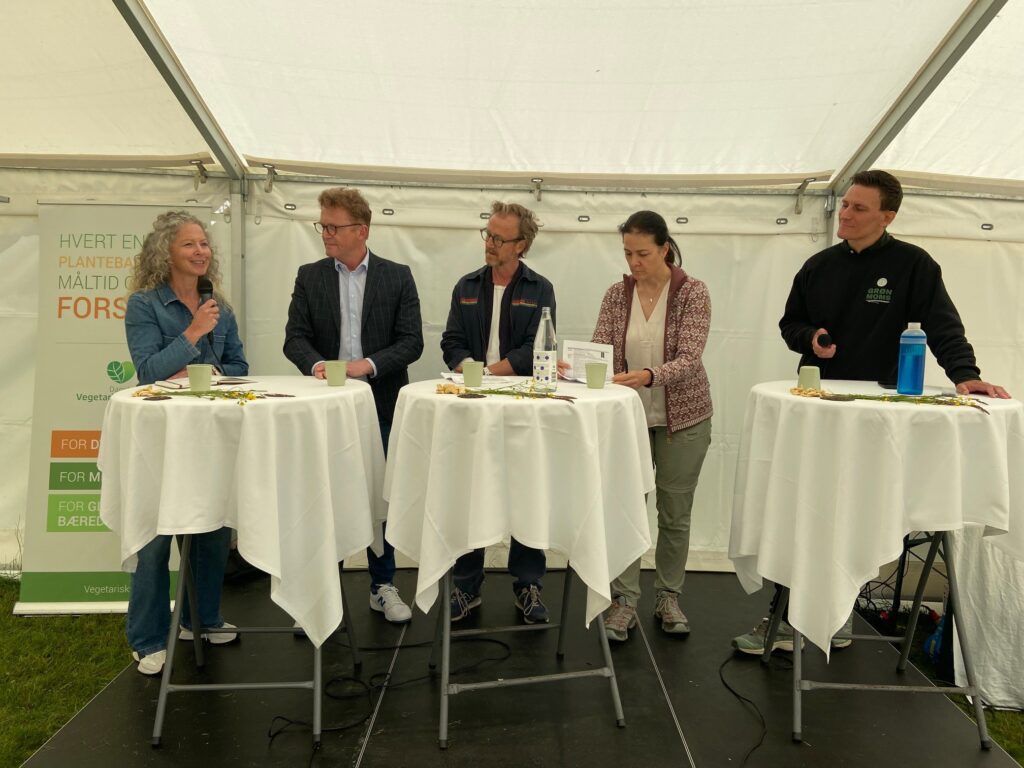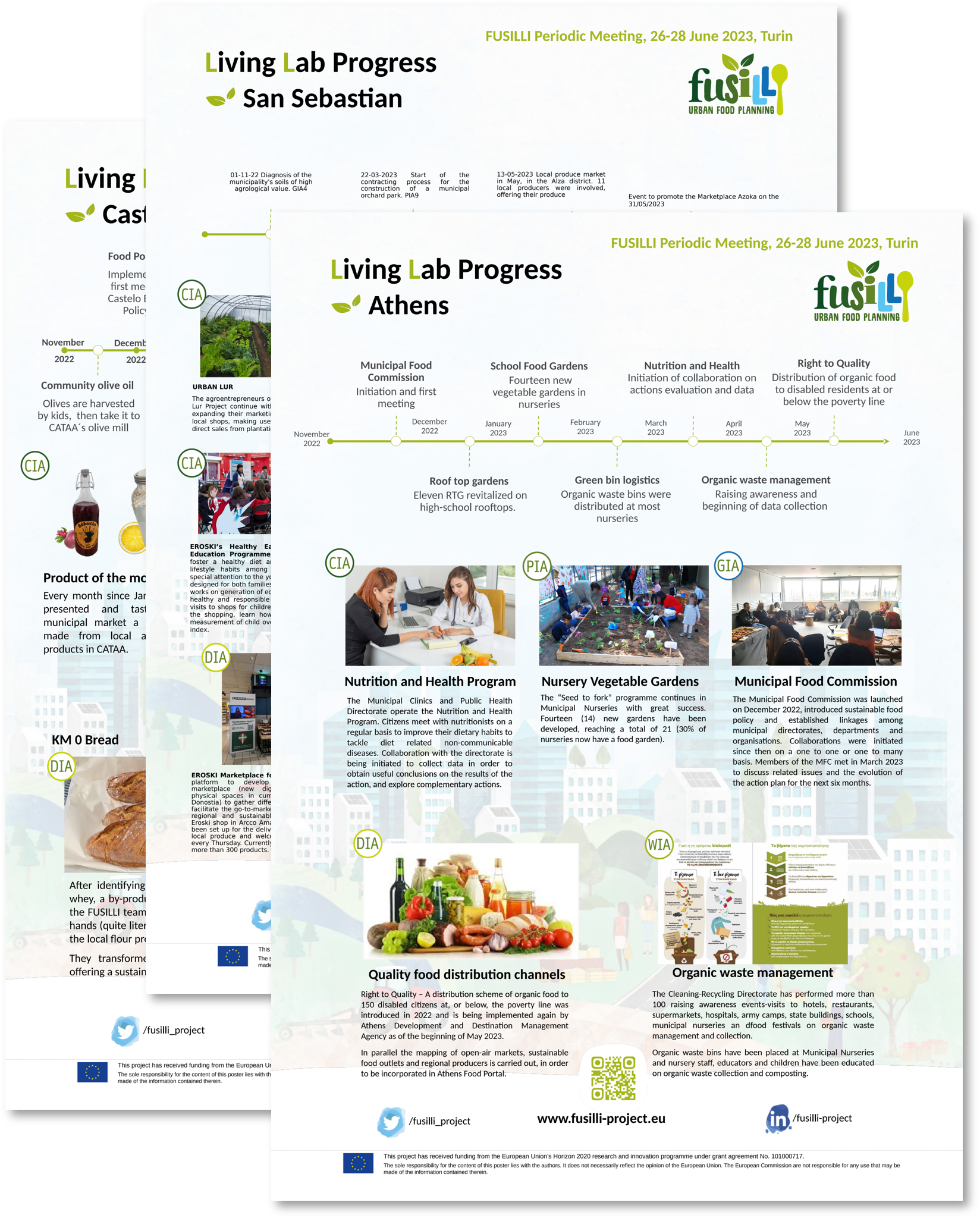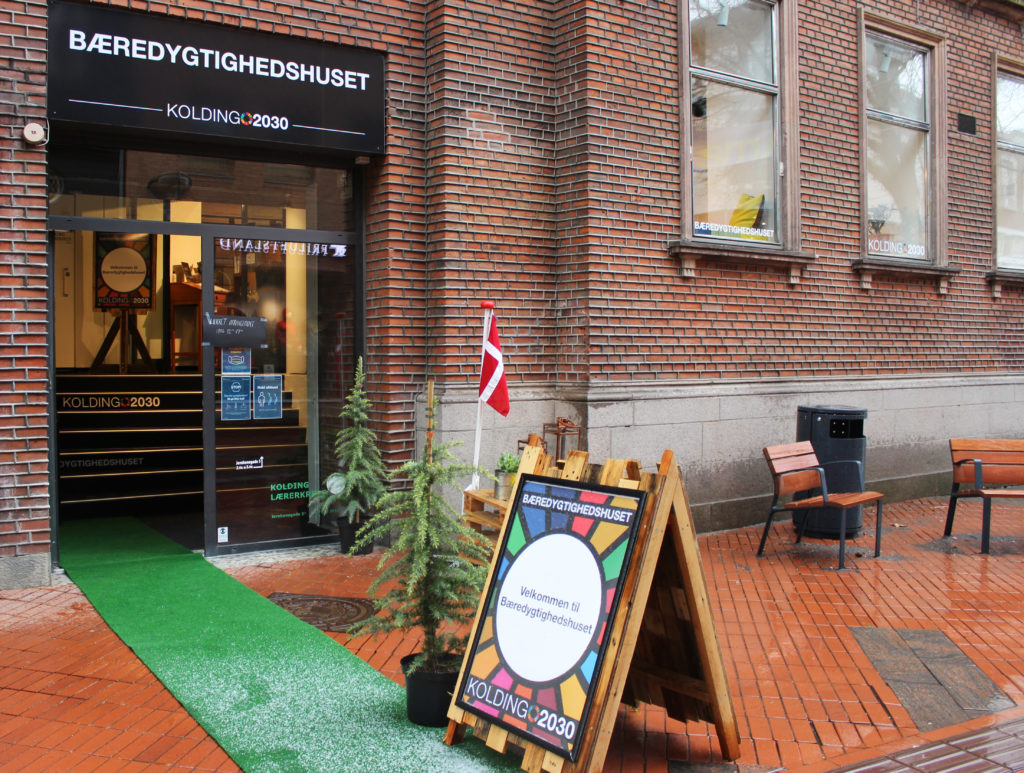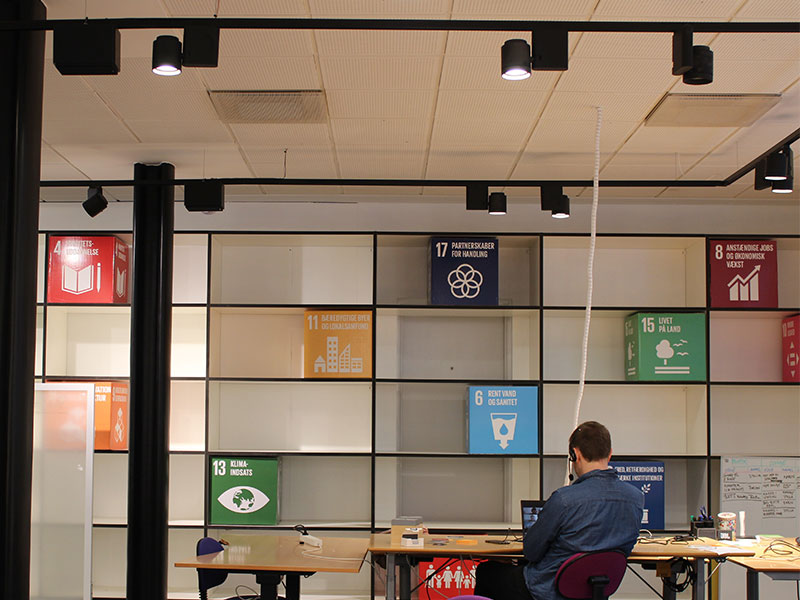Kolding Living Lab Outcomes and Tools
The FUSILLI Rome Living Lab has developed various outcomes and tools over the 4 years of project life time between 2021-2024. These city specific Living Lab outcomes and tools can be found on this page
Kolding's Roadmap
See their complete LL Roadmap
Kolding's Evaluation of Innovative Actions
See the evaluation of their implemented actions defined in the action plan
Kolding's Food Action Plan
Read their complete Urban Food Action Plan
Summary - Urban Food Action Plan - English
Read the LL's Urban Food Action Plan in English
Summary - Urban Food Action Plan - Danish
Read the LL's Urban Food Action Plan in the local language
The Municipality of Kolding is placed in the Southern part of Jutland and Denmark and is a versatile area of both coastline and country side with 15 towns and housing approx. 92,000 inhabitants. Kolding City is the largest city in the municipality with 58,000 citizens. The city has a rich topography with a Fjord to the East and a large valley to the West and with a creek running through the city. Kolding is an education city representing a large variety of schools, just to mention a few: University of Southern Denmark (SDU), Design School Kolding and International Business School (IBC).
The vision of Kolding is “Together we can create the sustainable society of the future”. In collaboration with our citizens, companies and educational institutions, we want to take the lead in creating a new level of quality of life and a growth based on a circular economy. By using a design approach, Kolding develops, experiments and tests solutions in real-life environments in collaboration with local stakeholders. With this approach the city already practices a “Living Lab” methodology and given this work, Kolding has been designated as the only UNESCO Creative City in Denmark.
Kolding 2030
The Municipality of Kolding has been working with sustainability development since the 1970’s and since 1998, it has been a member of the global organisation Local Governments for Sustainability (ICLEI). The UN’s 17 sustainable development goals are very high on the agenda and anchored in the Kolding2030 sustainability strategy, which aim is to build the sustainable society of the future. The strategy is founded on six areas of actions: Increased health and well-being for all, a climate in balance, a diverse natural world, an increased focus on water as a resource and new innovative business models that keep the resources in circulation and create jobs.
As part of the implementation of the Kolding 2030 strategy and to engage and involve both citizens and other stakeholders in the process, Kolding is opening “The house of sustainability”. A physical place, where people can come for inspiration, information, co-creation and hear much more about all the sustainability initiatives of Kolding including the FUSILLI project.
Main objectives and planned implementations
The food system plays a vital role in the Kolding2030 strategy, as it links and has an impact on all the areas of action and consequently is one of the keys to success. The main purpose of the FUSILLI project is to gain and provide insights which can serve as foundation for how to succeed with the food system transformation in Kolding, the EU and the rest of the world.
Objectives
- Increase and anchor food focus in the municipally and community by signing the MUFPP and creating a food council and commission
- Create a vision and strategy for the food system transformation of Kolding
- Reduce food waste and introduce new food advices and ingredients in the food servicing facilities of the municipally
- Change food behavior to make a positive sustainable impact on the environment (CO2 emission) and health
- Empower citizens to transform their food practices: at home, at school, at work, through DIY initiatives, hands-on nature education, gardening and apiculture
- Strengthen existing sustainable food initiatives by expanding current programs and knowledge sharing
- Fuel sustainable food development by increasing focus and visibility of local and seasonal produced food
- Identify key “game changers” for a successful transformation of the food system
Links to local FUSILLI pages in Danish
Contact
Helle Vilsbøll
Project Manager
Sustainable Food Systems at Kolding Municipally
